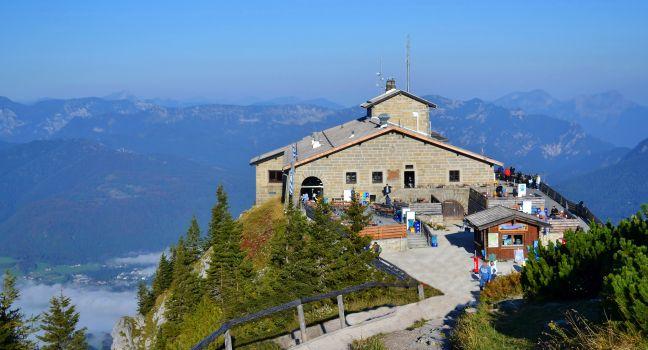Obersalzberg and Kehlsteinhaus

The site of Hitler's luxurious mountain retreat is part of the north slope of the Hoher Goll, high above Berchtesgaden. It was a remote mountain community of farmers and foresters before Hitler's deputy, Martin Bormann, selected the site for a complex of Alpine homes for top Nazi leaders. Hitler's chalet, the Berghof, and all the others were destroyed in 1945, with the exception of a hotel that had been taken over by the Nazis, the Hotel zum Türken. Beyond Obersalzberg, the hairpin bends of Germany's highest road come to the base of the 6,000-foot peak on which sits the Kehlsteinhaus (aka the Adlerhorst, or "Eagle's Nest"), Hitler's personal retreat and his official guesthouse. To get the most out of your visit to the Kehlsteinhaus, consider taking a tour. To get there, you need to take a one-hour round trip from Dokumentation Obersalzberg by bus. A tunnel in the mountain will bring you to an elevator that whisks you up to the Kehlsteinhaus and what appears to be the top of the world, or you can walk up in about half an hour. There's also a restaurant at the top serving light Bavarian cuisine.



